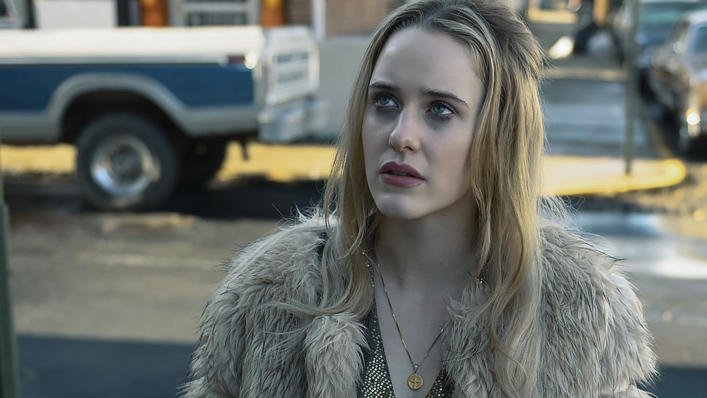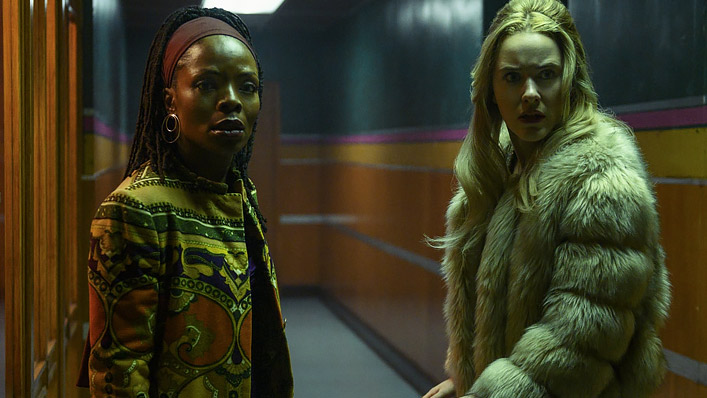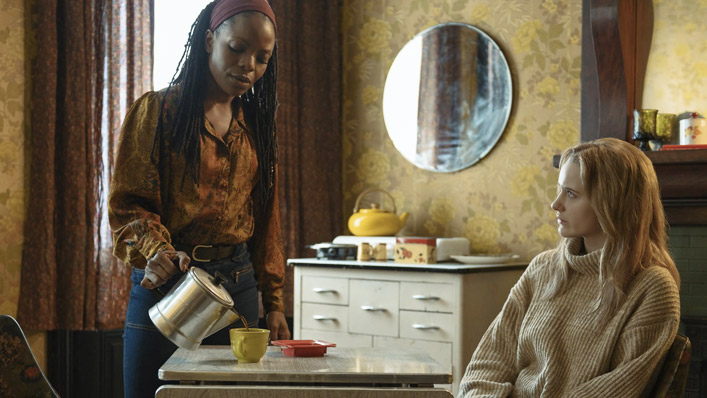Smart and subversive thriller I’m Your Woman rearranges a male-centric genre

Prime Video‘s smart and subversive crime thriller I’m Your Woman rearranges a traditionally white and male-centric genre, telling the story of a woman forced to go on the run.
I’m Your Woman is a gritty ‘70s-set crime movie for anyone who’s watched gritty ‘70s-made crime movies—of which there are plenty—and noticed something lacking. In the majority of cases, even the greats push women to the side. Many focus on men doing questionable and illegal deeds that impact the wives and girlfriends that sit dutifully at home; however, they rarely give more than a supporting part to the fairer sex.
See also
* Best new movies & series on Prime Video
* All new streaming movies & series
That said, marking the fourth feature written and directed by filmmaker Julia Hart, I’m Your Woman isn’t just an attempt to redress a historical imbalance. It’s a never that thin, or schematic, or simplistic. This is a neo-noir-leaning crime thriller that finds space for characters that aren’t usually given it on multiple levels, values their perspectives and journeys at every turn, and delivers a knockout movie that’s complicated, gripping and magnificent.

It’s also a film starring Rachel Brosnahan as an unhappy housewife. The engaging actor is worlds away from The Marvelous Mrs. Maisel, though. Viewers first hear her before they see her, with her blonde-locked, fuchsia-robed, cigarette-smoking character Jean explaining that she met Eddie (Bill Heck), fell in love, got married and planned to have children, but the latter didn’t eventuate.
Jean is vocal about her loneliness, although a solution to her maternal yearnings and solo days soon arrives, with Eddie bringing home a baby that she promptly names Harry. But theirs isn’t a life of domestic bliss, as a late-night knock on the door solidifies. Eddie has gone missing during a job. The criminal colleagues he double-crossed are bound to come looking, so Jean and Harry must leave immediately.
Co-scripting with her regular collaborator and producer Jordan Horowitz, Hart is economical with specifics about Eddie’s exploits—because Jean doesn’t know and this isn’t Eddie’s tale. That’s a smart and savvy storytelling choice, continually aligning viewers with Jean as she struggles to adjust to life on the run.
Escorted from her comfortable suburban home in an unnamed city by the no-nonsense but still kindly Cal (Arinzé Kene), she’s soon installed a nondescript safehouse and told to stay put, although adhering to those instructions isn’t straightforward. Nor is her swift plunge deeper into the murkiness and mess caused by her absent husband. Jean wasn’t even permitted to drive by Eddie—so evading gun-toting killers, learning to shoot and getting caught up in a car chase are drastic developments.
Hart recognises that her chosen genre and period often disregards Black Americans and the subject of race. Most crime films made and set at any time, including now, are guilty of the same—and challenging that status quo might’ve played as lip service if I’m Your Woman’s key figures weren’t so richly drawn. As a character study, the feature heroes Jean, but it follows in the footsteps of Steve McQueen’s exceptional and also female-focused Widows by making everyone on-screen count. Every corresponding performance makes an imprint, with Kene and Blake proving as phenomenal as the awards-worthy Brosnahan.

The movie’s nuance, mood and a penchant for meticulous detail all similarly stand out. I’m Your Woman is the kind of film that lets its main players navigate erratic choices, because every decision made and action taken is firmly anchored in these characters. It turns the disorienting feeling of being thrust out of one’s usual place, as seen via its handling of gender and race, into a persistent tonal base note that never subsides.
It’s so vivid with ‘70s decor and costuming—evinced in its frequently amber-hued and gliding cinematography by Bryce Fortner, which celebrates minutiae—that it could easily be mistaken for a release from the era. Hart has crafted a complex and compelling entry into the crime thriller oeuvre. It is a resonant rebuke to the genre’s usual white masculinity and a formidable account of a woman and her friends fighting hard not to belong to anyone. It’s welcome in 2020, but the ‘70s definitely could’ve used it.

















